Politics and Religion in the Global Village
As the world moves rapidly toward the formation of a global village, attention is being shifted increasingly from concern over what is best for individual nations (nationalistic interests) to what is best for the whole world (global interests). This revolutionary surge toward a new world order is the result of dramatic developments over the last hundred years. In fact, Kofi Annan, secretary-general of the United Nations, has written, “If one word encapsulated all the changes the world was living through, it was globalization.”1
Secular Developments
The twentieth century witnessed many major changes in the secular realm. Military conflicts shifted from being primarily localized in scope (one nation against another) to being international (clusters of nations uniting against an enemy). Two world wars involving the armed forces of many nations brought unparalleled destruction and loss of life to large areas of the world. Multinational forces intervened militarily in the Far East (Korean and Vietnam Wars), the Middle East (Gulf War), and Europe (Bosnia and Kosovo).
Warfare technology developed nuclear weapons and delivery systems with the potential of destroying all life on earth.
The World Court was established to judge actions and disputes of nations and leaders. The United Nations was formed to provide a forum where nations could solve differences without war.
The development of long-range airplanes enabled us to travel almost anywhere in the world in one day.
The telephone, satellites, computers, and e-mail made instant, worldwide communication possible between people, governments, and businesses. Television and radio brought the sight and sound of world events directly into our homes.
Individual nations and the United Nations attempted to influence human rights policies of nations. World conferences were held to address such issues as AIDS, population control, the plight of women, the environment, and human rights. The migration of significant numbers of people to various parts of the world prompted the exposure and even amalgamation of diverse racial, national, and ethnic groups.
The nations of Europe are forging a form of unification (the European Union) with a common economic system and currency and the possibility of eventual political and military union.
Economies of nations have become increasingly interdependent, moving the world toward an international economic system. The European Union is one step in that direction. Nations in various parts of the world are forming regional free trade blocks (such as NAFTA). What happens with the stock market in one part of the world dramatically affects the performance of stock markets in other parts. Significant companies have internationalized with branches in several nations. Companies of different nations are merging with each other. Some companies are taking over or purchasing companies from other nations. Banking firms are continually merging into larger conglomerates. The World Bank and the International Monetary Fund are significantly advancing the internationalization of economics.
All these developments, some of which benefit and others of which threaten mankind, have made the world smaller. Events in one region can have repercussions for the entire world. As a result, individuals can no longer afford to focus their attentions exclusively on local and national matters. This increasing globalization imposes a growing concern for what happens worldwide.
In light of this concern, on September 6–8, 2000, approximately 150 world leaders gathered at the United Nations world headquarters in New York City for the UN Millennium Summit. It was the largest gathering of world leaders in the history of mankind.2 Its stated purpose was to make globalization “fully inclusive and equitable” by getting world leaders and their nations to commit to the goals of freeing all peoples of the world from want and fear, protecting the environment from destruction, and renewing the United Nations.3 The summit ended with world leaders unanimously adopting the United Nations Millennium Declaration, which “contains a statement of values, principles and objectives for the international agenda for the twenty-first century.”4
Religious Developments
The last one hundred years have also witnessed significant developments of an ecumenical nature in the religious realm, including interdenominational cooperation; union of denominations; national federations of church groups (such as the National Council of Churches); international councils and fellowships (such as the World Council of Churches); dialogues between groups within organized Christendom; dialogues between Christendom and non-Christian religions; Catholic observers at World Council of Churches’ meetings; Protestant observers at Roman Catholic meetings; and joint participation of Protestants, Catholics, and people of other religions in large public rallies.
In October 1999, representatives of twenty religions from forty-eight nations met at the Vatican to explore cooperative opportunities in the new millennium. Non-Christian attendees included Jews, Muslims, Hindus, Buddhists, Sikhs, Zoroastrians, Mandaeans, Jains, Shintoists, Confucians, Baha’is, representatives of traditional religions, and several Japanese faiths. Organized Christendom attendees came from the following church groups: Roman Catholic; Anglican; Lutheran; Reformed; Mennonite; evangelical; and Greek, Armenian, Romanian, and Assyrian Orthodox.5
Anglican and Roman Catholic bishops from thirteen world regions met in Toronto in May 2000 to form “a joint commission to consider unification.”6
The Episcopal Church and the Evangelical Lutheran Church (America’s largest Lutheran denomination) have approved the formation of an alliance “to share clergy and sacraments, and work together in ‘shared mission.’’’ This alliance was to take effect on January 1, 2001.7
Roman Catholic and Eastern Orthodox leaders from around the world met in Emmitsburg, Maryland, in July 2000 “to seek common ground” with the prospect of eventual complete reconciliation. The meetings ended without significant progress.8
In June 2000, three hundred representatives of thirty-nine religions met in Pittsburgh, Pennsylvania, under the leadership of Episcopal Bishop William Swing, to sign a charter establishing the United Religions Initiative (URI). The URI asserts that all religions derive their wisdom from the same source.9 It implies that all religions have a common base for unification. In 1995 Bishop Swing declared that, as the world is progressing toward “unity in terms of global economy, global media and global ecological system,” one thing is missing—“a global soul.”10 In other words, a unified world will need a unified religion.
On August 28–31, 2000, one thousand representatives of religions from around the world met at the UN for the Millennium World Peace Summit of Religious and Spiritual Leaders. Its purpose was to create “an International Advisory Council of Religious and Spiritual Leaders that is designed to serve as an ongoing interfaith ally to the UN in its quest for peace, global understanding and international cooperation.”11
The secretary-general of this religious summit, Bawa Jain, worked with UN Secretary-General Kofi Annan and his office to arrange this gathering. Jain is a leader in Bishop Swing’s United Religions Initiative.12 Jain expressed belief that all religions are equal, that claims of absolute truth must be dealt with, and that all attempts to persuade people from one religion to believe another should be outlawed. He stated that the timing of the religious summit one week before the UN Millennium Summit of world political leaders was perfect because it afforded religious leaders the opportunity to show political leaders “how to usher in the peace of the new world order through religious universalism.”13
This religious summit received heavy support from American communications mogul Ted Turner, founder of CNN, and Canadian billionaire Maurice Strong. In his speech at the summit, Turner told how he rejected the Christian faith he was taught as a child because of its intolerant claim to be the only true religion.14 Strong, who is senior advisor both to the UN secretary-general and the president of the World Bank, is so influential in global affairs that The New Yorker magazine stated, “The survival of civilization in something like its present form might depend significantly on the efforts of a single man.”15
Representatives of several religions reacted negatively to the summit’s emphases that all religions are equal and that no attempts should be made to sway people from one religion to another. Less than two weeks after this Millennium Religious Summit, the Vatican’s Congregation for the Doctrine of the Faith issued a thirty-six-page document declaring the Roman Catholic Church the only “instrument of the salvation of all humanity.” It stated that non-Christian religions are “gravely deficient” as a means of salvation and that most non-Catholic Christian denominations are not “churches in the proper sense.”16
During the second week of September 2000, more than 160 Jewish leaders from all major branches of Judaism signed “a landmark statement acknowledging Judaism’s shared roots with Christianity and calling on Jews to give up distrust of Christians.”17
On September 9–11, 2000, representatives of “Orthodox, Roman Catholic, Anglican, Reformation Protestant, Pentecostal, and evangelical churches as well as Christian networks and para-church organizations” from around the world met at Fuller Theological Seminary to explore the possibility of forming a “global Christian forum” that would address issues of common concern and “foster relationships that could lead to common ministry.”18
Leaders of the National Council of Churches, the National Association of Evangelicals, and possibly the Roman Catholic ecumenical affairs office in Washington are considering meeting together this spring to study the possibility of forming “a new broad-based national ecumenical body that would work together on common social causes.”19
A Biblical Perspective
These secular and religious developments toward globalization take on more significance when viewed from a biblical perspective. Revelation 17—18 reveal that a global, political-economic-religious system will dominate the world during the future Tribulation period. The political division (“the beast”) will tolerate domination by the religious division (“the harlot,” which has global influence [17:15]) as long as it needs that division to help it attain complete global domination (17:3, 7). But once that goal is reached, the political division will turn against the religious division and destroy it (17:16).
According to Vatican expert Malachi Martin, powerful cardinals in the Vatican have formed an alliance with “leaders of major international humanist organizations,” such as “academia, foundations, nongovernment organizations, even some governmental agencies.” These cardinals and humanist leaders have a “globalist view.” They believe that the Roman Catholic Church is “the only global structure” that is able “to act as a stabilizing social force in the world.” Thus the humanist leaders hope that “they can get the Roman Catholic Church to side with them” in fulfilling their globalist view.20
In light of this, one can expect that globalism will increasingly pressure religious groups to unite with the Roman Catholic Church.
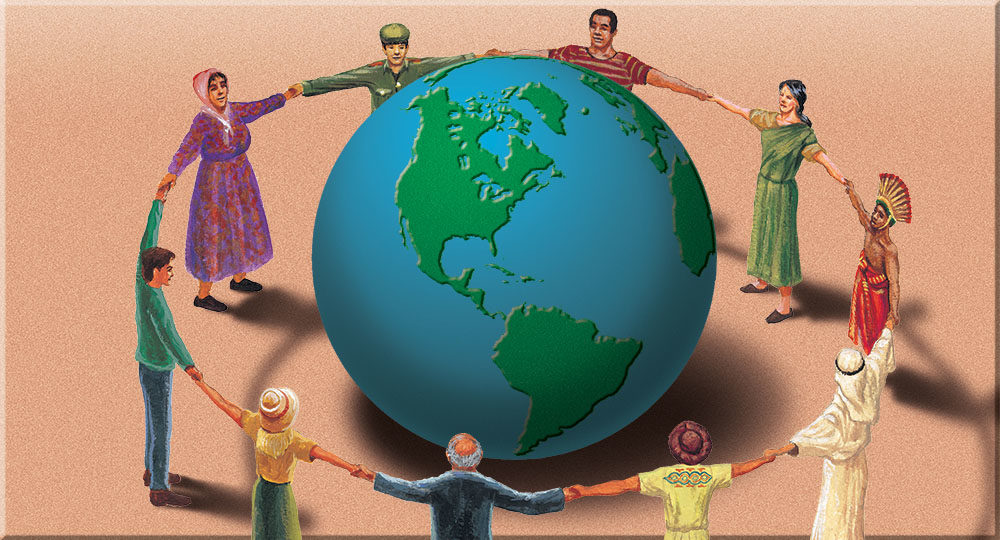

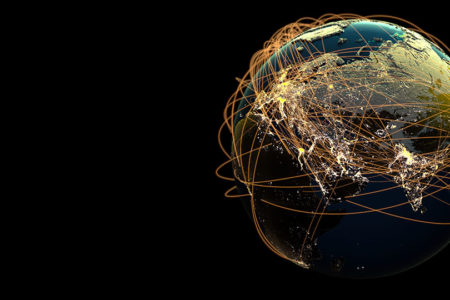
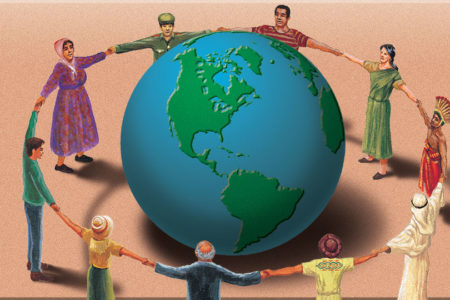
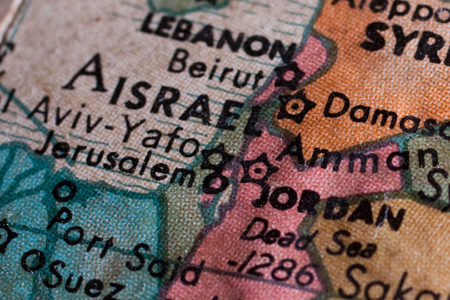
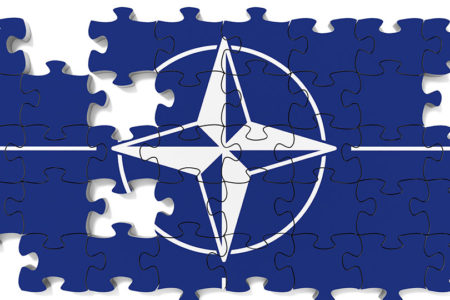


1 thought on “Politics and Religion in the Global Village”